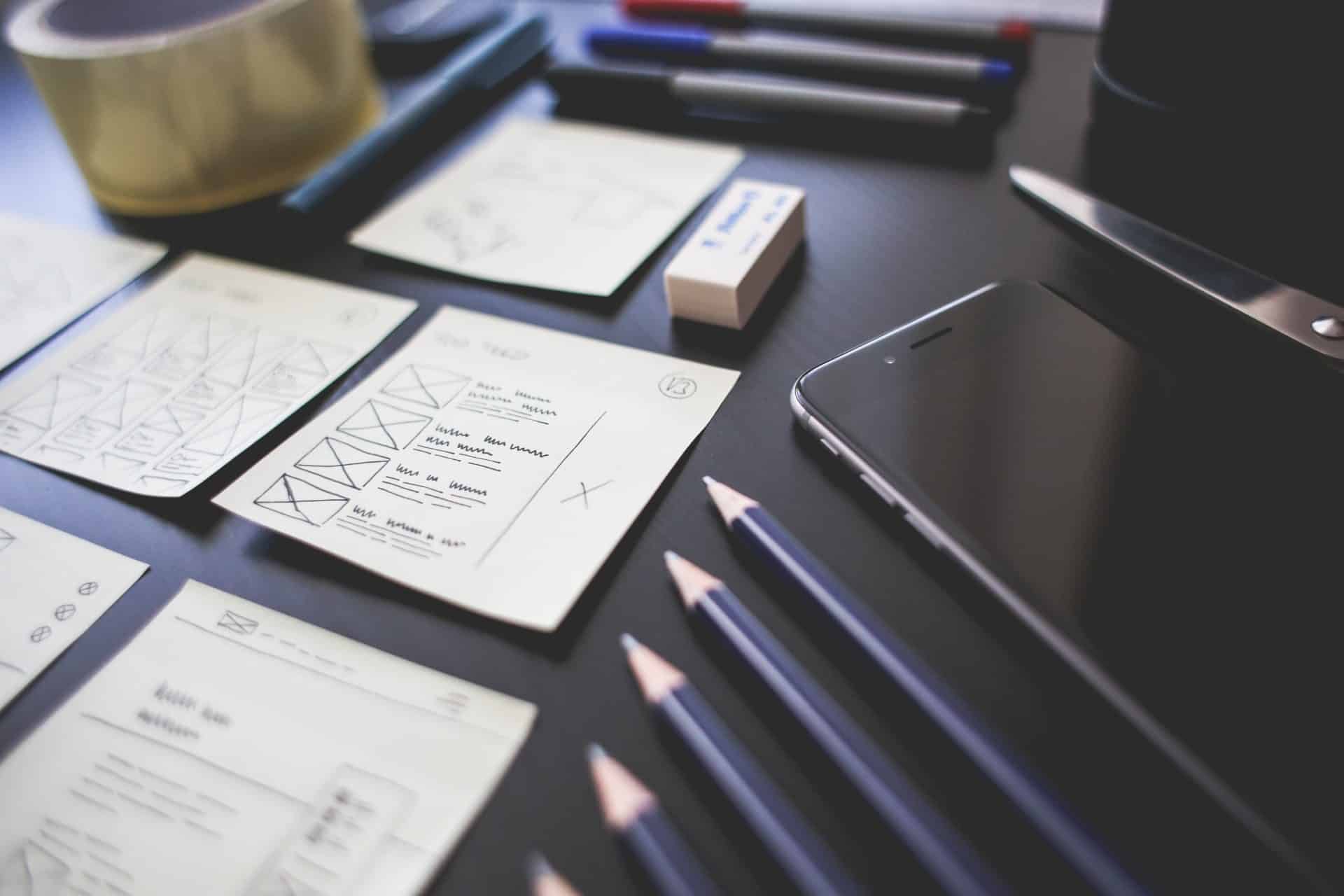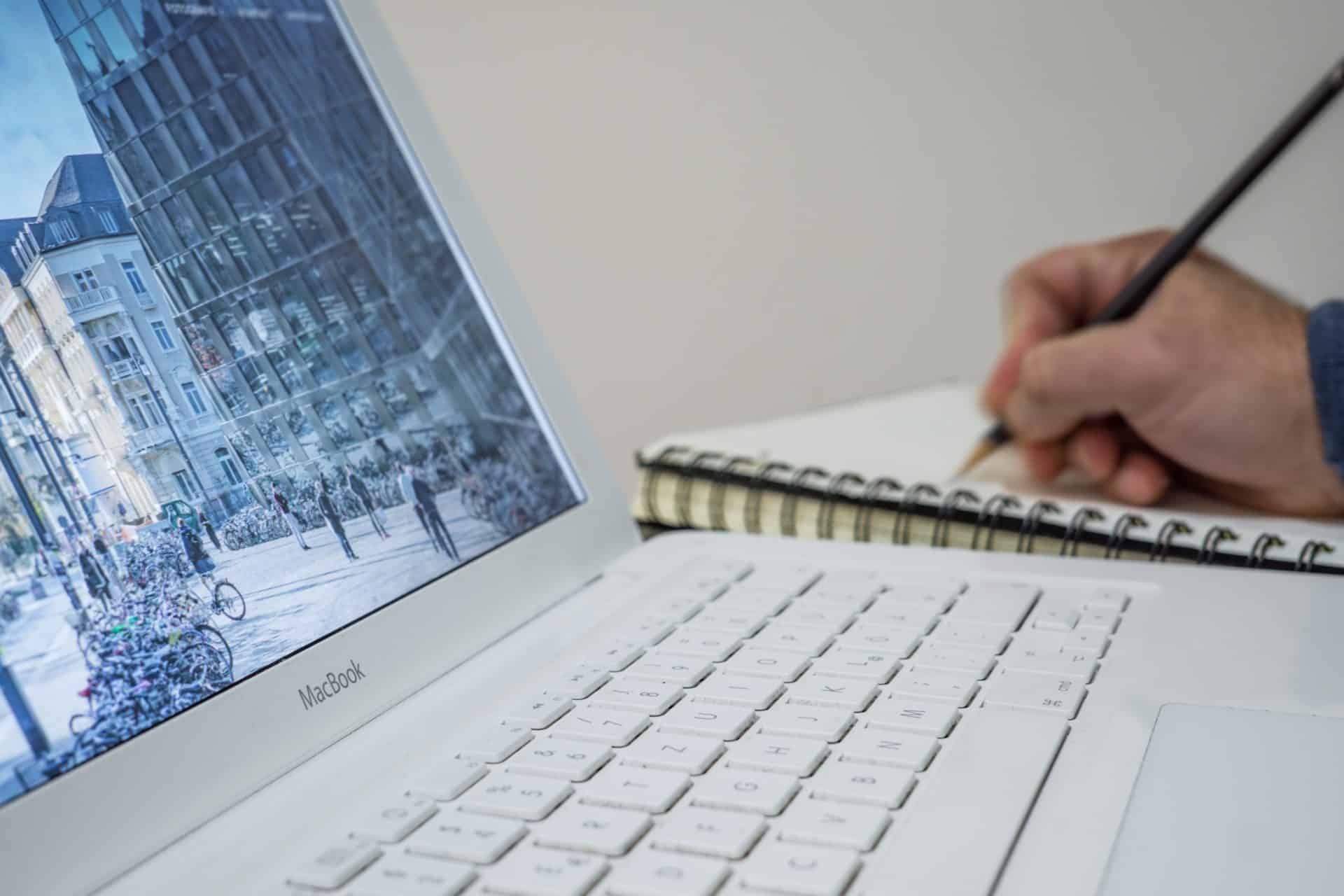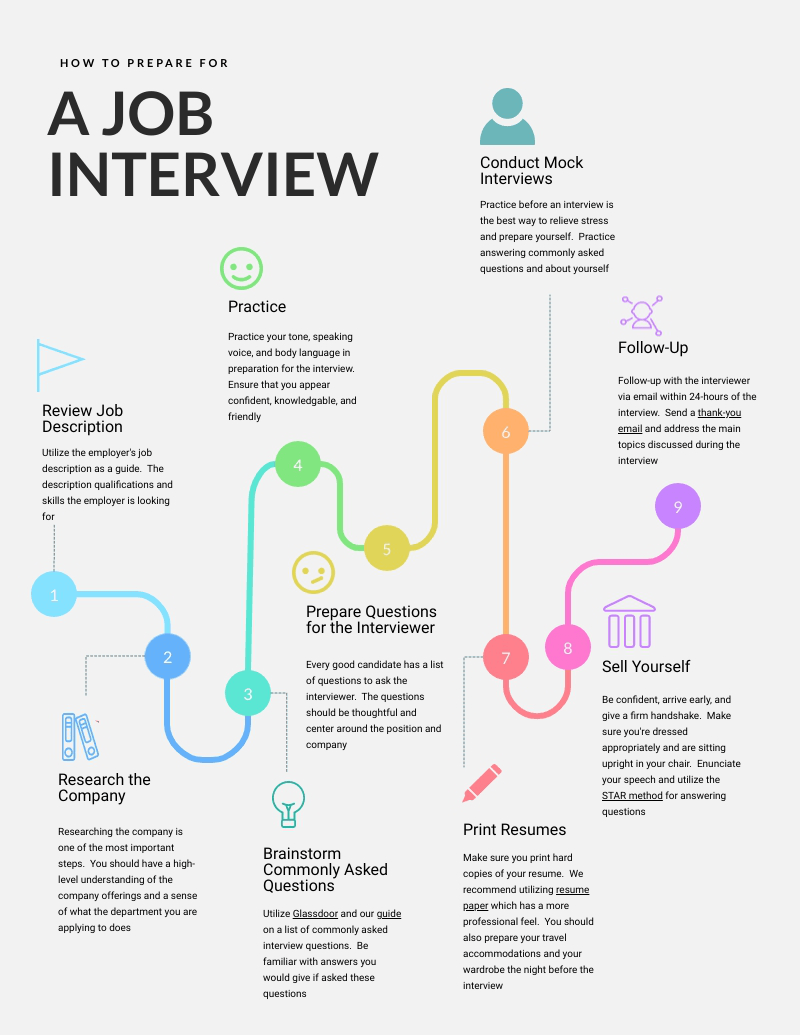Tips to Prepare for a Job Interview
Preparing for a job interview is something you must do before any interview.
You need to ensure that you are fully prepared and able to speak confidently on any questions you may be asked.
We list below the 14 ways to prepare for a job interview.
This is the definitive, full list, with over 2k words.
Whether this is one of your first real jobs or you’re a seasoned veteran, you need to make sure your nerves don’t get the best of you.
We’ve also discussed in-depth here on what you should do during an interview.
Both articles should be a good starting point.
Here are 14 tips to help you prepare for your job interview.
What Goes Into an Interview?
While no two interviews are exactly the same, there is a general theme and flow of most interviews which candidates should be prepared for.
Most interviews will begin with an introductory phase, where you will be greeted by the interviewer and led to the meeting room where the interview will be held.
From there, the interviewer will ask you a list of prepared questions.
These questions can range in topic and is highly dependent on the role and the title of the position.
We’ve compiled a pretty hefty list of commonly asked interview questions which most employers look to ask interviewees.
The next phase of the interview is the interviewees time to ask questions of the interviewer.
Generally, an interviewee should look to ask a minimum of three questions, but no more than five.
These questions should be prepared beforehand and should be related to the role and the responsibilities of the role.
Interviewees should steer clear of asking personal or human resource level questions during the initial phase of the interview.
The last stage of an interview is the closing.
This is where the interview comes to an end and the interviewer will give some detail on next steps.
The interviewer may, if the interview went well, indicate specifics and how the process will continue.

How Long to Prepare for an Interview?
Successful interviews are predicated on a candidate’s ability to prepare fully beforehand.
As most job postings have a slew of successful and capable applicants, you will need a way to differentiate yourself and ensure that you present yourself in the best possible manner.
When asking how long to prepare for an interview, it is best to understand that each candidate is different, and the time needed to fully prepare will vary from candidate to candidate.
In a recent poll, nearly 64% of candidates indicated that they had prepared between 0-1 hours for an interview.
Nearly 27% indicated that they had spent between 1-2 hours preparing for an interview and 9% with over 2-hours preparing.
Although there have not been any studies completed which shows greater success in an interview when preparing for longer hours, it can be reasonably assumed that additional preparation may be a precursor to interview success.
Research
A hiring manager wants to see that you’ve invested time in fully understanding not only the position you’re applying for, but the company’s current landscape and growth trajectories.
They want to see that you’ve spent time researching their competitors and that you fully understand their core business offerings.
You may be asked to provide examples or reasons on why you want to work for the company and being familiar with their offerings will help you in answering that question.
More so, you may be asked to list competitors and why you believe the company’s offerings excel.
Understanding the company end-to-end will be helpful in being able to answer any questions pertaining to the company.
This will also allow you to provide more thoughtful questions towards the end of the interview as they relate to the company itself.
It is much better to be over-prepared and to have a better understanding of the company than less.
Provide Specific Examples
A job interview is your chance to shine and boast on your abilities and experience.
You need to sell yourself as both capable and willing.
As-such, you should be prepared with a list of 3-5 main reasons on why you are the best candidate for the role.
For each reason you provide, you need to provide fact-based reasoning behind it.
For example, if you state that you’re organized and detail oriented, you should qualify that statement by stating,
“I have utilized my organizational skills to”
Provide specific examples of when you utilized a skill in a professional environment.
You should also provide assurances to the interviewer on why you want the position.
They will be conducting multiple rounds of interviews and by stating exact, detailed reasons on why you want the position may help you to stand out.
Anticipate Concerns
With the tight labor market, interviewers will be given a number of interviewees vying for the position.
They will thoroughly look into your qualifications, whether that may be education or professional experience, and may have some concerns.
You will need to be completely honest with yourself on what your weaknesses are.
These are weaknesses that an employer may find concerning when reviewing your resume.
Understanding your weaknesses places you in a much stronger position to defend and provide explanation to any concerns.
You should place yourself in the employers’ position and understand that some level of hesitation, with any new hire, is expected.
But preparing yourself for those hesitations and assuaging their concerns will help you in their final decision.
Preparation
This may seem obvious, and may tie in to the first point, but preparation is the single most important thing you can do once the interview is confirmed.
You should specifically be prepared for questions you may be asked by the interviewer.
While you won’t know what the questions are beforehand, many sites have lists of common interview questions which you can prepare from.
You should anticipate the questions based on a number of factors, including your age, your profession, your number of years of experience, and your education.
You wouldn’t want to study up on technical know-how for a non-technical position.
Similarly, read up on common interview questions and genuinely answer them to the best of your ability.
You’ll want to practice your answers multiple times so if and when the question is asked during the interview you can answer flawlessly and without stumbling on your words.
Be Ready to Ask Questions
Equally as important as being able to answer questions asked of you, is your ability to ask pointed and direct questions to the interviewer.
Interviewing is a two-way street and you should show the interviewer that you have done your research and homework about the company and the position and have a few questions.
The best questions to ask typically involve some research into the company and the position.
By taking genuine interest in both and asking questions related to either, you show the interviewer that you’re a serious candidate who has come in prepared.
Some typical questions you can ask include:
- What do you believe is the best thing about working here?
- If you could hire the ideal candidate, what qualities would they have?
- What are some current issues you are facing and how would I be able to assist?
- What steps can I take on my first day to ensure that I am successful in the position.
Score a Win Immediately
Many interviewers are conducting multiple rounds of interviews a day.
You want to come in and show a level of excitement and enthusiasm from the get-go.
Coming into the interview with a smile and a positive note on the company allows you to stand-out from the competition.
Similarly, exuding confidence and genuine appreciation for the interviewers’ time can go a long way.
You want to start the interview on a positive note and continue that energy throughout.
A bad start to an interview can substantially decrease your chances of an offer being made, so make the most of the first five minutes!
Be Early
Being early to an interview cannot be overstated.
You should follow the “early is on time” rule and arrive between 15-20 minutes before your scheduled interview.
There are some factors which you cannot control, such as traffic or a last-minute errand, so giving yourself that wiggle room is a must.
In addition, the interviewer will typically be alerted once you arrive and may make a mental note of the time you arrived.
I’ve spoken to countless hiring managers who have complained that their interview started late because the interviewee was not there on-time.
Don’t start the interview off on the wrong foot, you want to arrive early and mentally prepare yourself.
Use the bathroom to freshen up and take a minute to breathe.
Wear Appropriate Clothing
In person interviews are, typically, your first face-to-face with the hiring manager.
You want to make a good impression and should always dress for the job you want.
When interviewing, you want to come in wearing business formal clothing.
Your clothes should be ironed and wrinkle free and should fit appropriately.
If you don’t have business formal clothing, feel free to borrow from a family member or friend who is of similar height and build.
In addition, the clothes should be more neutral tones.
You don’t want to wear overly bright or too dull colors but want to maintain a level of professionalism.
Ally Yourself With the Interviewer
This one is a bit complicated but a general piece of advice that I give to all applicants applying to their first position.
You want to ally yourself with the interviewer in a subtle manner and one that does not come off as kissing-up.
In simple terms, you want to be agreeable and provide factual points which back up the interviewers claims.
How so?
If the interviewer says something as simple as,
“Beautiful weather we’re having this week”
You don’t want to say
“Oh, I think it’s too hot.”
Rather, you can say something along the lines of:
“I love living here because of the weather!”
While it may seem obvious, by agreeing with the employer and allying yourself with them, you are helping to create a future relationship.
The employer will see you as someone they can work with and not someone who may cause issues within your professional relationship.
Additionally, these qualifying statements send subtle messages about your intentions.
By stating you love the weather in the city, the employer can deduce you enjoy living in that town and are not planning to move.
A lot of interviewing tactics are about the nuances, the things that are and aren’t said.
Master those and ally yourself with the interviewer to increase your chances at the position.
Be Positive
Positivity can go a long way.
Positivity can help you see more possibilities in your life.
When interviewing, being positive and entering each interview with a positive and radiating force will be contagious.
If you enter a room in a dull and sulky manner, you exude that feeling to others.
However, by bringing in positive and hopeful energy, it will be received in-kind.
You want to relay that you’re a positive, glass half-full type who is willing to undertake any challenge.
Don’t let negative thoughts and feelings distract you from the finish line.
Finish in a Positive Manner
The first five minutes and the last five minutes of an interview are the most crucial parts.
You want to enter on a positive note and leave on one as well.
The interviewer will reciprocate your initial feelings and energy when you begin the interview.
But when you leave the room, what will they remember?
You should always end on a high note, a note of praise for the company, appreciation for their taking their time to interview you, and a list of your accomplishments and what you can bring to the table.
Don’t Badmouth Anyone
You may be asked why you are looking for a new position or looking to enter the workforce.
This is one of the most common questions asked in an interview and helps to break the ice.
However, don’t be tempted to badmouth or speak ill of anyone when asked this question or during any part of the interview.
You should never speak poorly of former managers or companies.
Speaking poorly of other companies or managers shows a level of immaturity.
It may indicate that you don’t know how to create and foster good relationships.
In addition, within many industries, there are only one or two degrees of separation between professionals.
Your interviewer may very well know your former manager and may have a great relationship with them.
If you did have trouble or did not enjoy your previous professional relationships, simply state that you are looking for new opportunities and challenges.
Bring Your Resume (Multiple Resumes)
In an ideal situation, the hiring manager and the Human Resources department should have copies of your resume on hand.
However, you don’t want to leave anything to chance.
You should print out 2 resumes for every interview.
So, if you’re meeting with three people, print out and bring with you six resumes.
I always prefer going the route of printing my resume on resume paper.
It’s a couple of dollars more expensive, but definitely worth the reaction from the interviewers.
I tend to opt for this resume paper, which has never failed me.
Send Thank You Emails
This is a trend I’ve seen dying in the past few years; however, I wholeheartedly abide by it.
You should always, always, always send thank you emails to every person you met during the interview.
Thank you emails do not need to be long and overly exhaustive.
They should touch on the interview briefly, thanking the interviewer for their time and reiterating the reasons on why you’re an excellent candidate.
Typically, you will want to send the thank you email within 24 hours after your interview.
How to Prepare for an Interview – Your Resume
As there is no template for the questions that will be asked, it is best to review and prepare for all possible scenarios.
We highly recommend preparing at least one-hour for an interview, which will help you to feel more confident and prepared.
Not preparing for an interview can leave you scrambling for questions to ask or on how to answer certain questions.
This can derail your chances at being offered the job opportunity.
To prepare for an interview, you should begin with your own resume and experiences.
Make sure you have a full understanding of the details of your resume and can speak to specific experiences or achievements.
You should be able to explain any gaps in employment or any inconsistencies that an interviewer may inquire on.
When reviewing your resume, be sure to go into detail on your accomplishments and achievements.
You will also want to review your skills section and ensure that your knowledge of those systems and applications is up to date.
How to Prepare for an Interview – The Company
Perhaps just as important as reviewing your own resume is reviewing the company where you are interviewing.
A common interview question that interviewers ask is, “why do you want to work here” or “what do you know about our company?
” The reason this is asked is because the interviewer wants to ensure that the candidate has a level of excitement and eagerness about the opportunity.
They are looking for a candidate who looked to apply to the company and not one who merely sent out an application because they saw the job posting.
When studying and reviewing the company, be sure to go through their website and have an understanding of their offerings.
You should also check out their Glassdoor profile and see what their employees say about them.
Lastly, try to review any publicly available financial information.
You should look to gain a holistic understanding of the company and all their services and offerings.
Your Questions
A prepared interviewee is one who has a list of questions ready to ask at the end of the interview.
Interviewers have come to expect to be asked questions from the interviewee.
Questions indicate a level of interest and curiosity and not having any can be a poor sign and one that indicates a lack of preparedness.
Go through the company website and what you know about the role and the department that you are applying to.
You should look to write down three questions related to the role and the company and what the expectations of the role are.

The Process
While slightly vague sounding, the process is simply a mental one.
You should prepare yourself mentally the night before an interview by ensuring you have everything needed.
Be sure to print out additional copies of your resume and hold them in a professional folder.
You should also ensure that you have your bag packed for the interview and include a notebook, pens, business cards, and other essentials for the interview.
Lastly, look to prepare for the interview by getting a good night’s sleep.
Being well-rested and attentive will help you during the interview and the interview process.
You should always look to calm your nerves beforehand, which will help you answer the interviewer’s questions.
Conclusion
Understanding how long to prepare for an interview is highly dependent on the role and title of the interview.
However, we always and highly recommend preparing for at least one-hour the day before the interview.
Be sure to go over your resume and the basics of the company and the job position which you are applying for.
You should review a list of commonly asked interview questions to help you prepare for possible questions which may be asked.
In addition, be sure to prepare a list of questions to ask the interviewer towards the close of the interview.
Lastly, prepare your mind and body for the interview by going to bed early and having all necessary and essential documents ready to go.
Interviews do not have to be nerve-wracking or scary events.
They are simply a time for people to qualify one-another on a potential fit.
Don’t forget, you will also be interviewing the hiring manager and the company as a potential place you would like to work in.
It’s a two-way street and you may find that you do not believe that you fit there.
Follow these steps to prepare for your first interview and you will have a much easier time getting your first offer.








